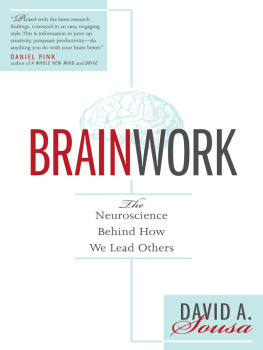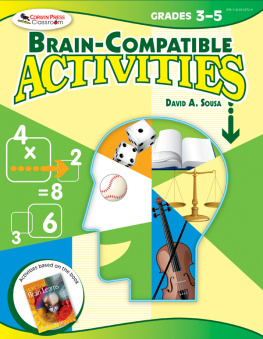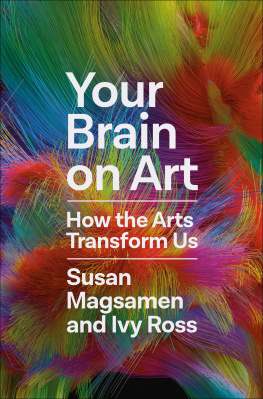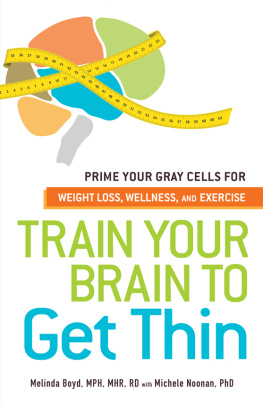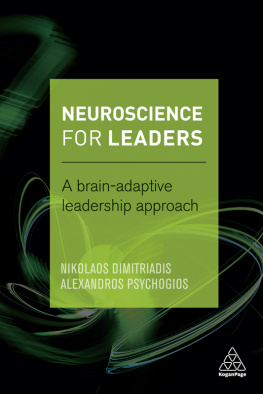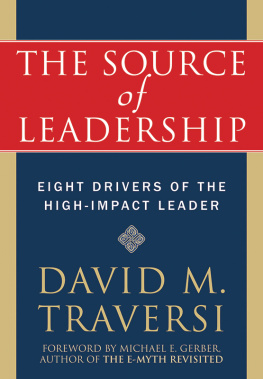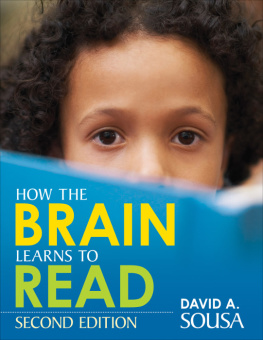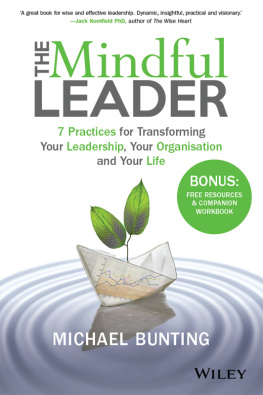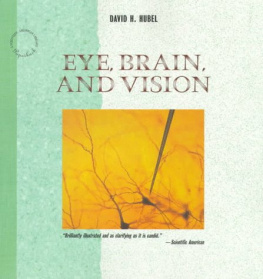David A. Sousa - Brainwork
Here you can read online David A. Sousa - Brainwork full text of the book (entire story) in english for free. Download pdf and epub, get meaning, cover and reviews about this ebook. year: 2009, publisher: Triple Nickel Press, genre: Romance novel. Description of the work, (preface) as well as reviews are available. Best literature library LitArk.com created for fans of good reading and offers a wide selection of genres:
Romance novel
Science fiction
Adventure
Detective
Science
History
Home and family
Prose
Art
Politics
Computer
Non-fiction
Religion
Business
Children
Humor
Choose a favorite category and find really read worthwhile books. Enjoy immersion in the world of imagination, feel the emotions of the characters or learn something new for yourself, make an fascinating discovery.
- Book:Brainwork
- Author:
- Publisher:Triple Nickel Press
- Genre:
- Year:2009
- Rating:3 / 5
- Favourites:Add to favourites
- Your mark:
- 60
- 1
- 2
- 3
- 4
- 5
Brainwork: summary, description and annotation
We offer to read an annotation, description, summary or preface (depends on what the author of the book "Brainwork" wrote himself). If you haven't found the necessary information about the book — write in the comments, we will try to find it.
Brainwork — read online for free the complete book (whole text) full work
Below is the text of the book, divided by pages. System saving the place of the last page read, allows you to conveniently read the book "Brainwork" online for free, without having to search again every time where you left off. Put a bookmark, and you can go to the page where you finished reading at any time.
Font size:
Interval:
Bookmark:

Copyright 2012 by Triple Nickel Press
All rights reserved, including the right of reproduction of this book in whole or in part in any form.
555 North Morton Street
Bloomington, IN 47404
888.369.3179
FAX: 888.467.5986
email:
triplenickelpress.com
Printed in the United States of America
16 15 14 13 12 1 2 3 4 5

Library of Congress Control Number: 2011944485
ISBN 978-0-9833020-3-2
eISBN 978-0-9833020-4-9
President and Publisher: Robert D. Clouse
Vice President of Production: Gretchen Knapp
Managing Production Editor: Caroline Wise
Senior Production Editor: Lesley Bolton
Proofreader: Elisabeth Abrams
Text and Cover Designer: Jenn Taylor
Introduction
The brain is a wonderful organ: It starts working the moment you get up in the morning and does not stop until you get into the office.
ROBERT FROST
A S THIS BOOK WENT TO PRESS, AMAZONS WEBSITE LISTED MORE THAN 36,000 books that have some connection to the brain. You can find books on how your brain grows and develops, what makes it happy or sad, how to keep it healthy, how it makes decisions, and how it can get you into trouble. There is definitely no dearth of information about the human brain, especially since the advent of imaging technology several decades ago. Brain books are in vogue. But with so much information available, where do you start? Brainwork compiles and condenses this information, throwing out the half-truths and addressing common myths to provide you with the must-have information regarding the brains inner processes and their applications to the workplace.
If you consider yourself a multitasker or believe the old shibboleth that knowledge is power, youre in for a few surprises. Some of the new revelations in brain research run counter to long-held beliefs in organizational management. Gone are the days of its not personal; its just business. Todays business world requires a closer look at emotional intelligence, and the best decision makers use both their emotional brains and rational brains. Multitasking is no longer considered a coveted trait but rather a hindrance to productivity. In fact, multitasking as we know it doesnt even really exist. And what happened to morality and ethical behavior? Have they gone the way of the dodo?
In the upcoming pages, well take a closer look at these subjects and explore ways to improve your thinking, control stress in the workplace, and lead by dissent. Of course, brain health is most important, so weve devoted a chapter to taking care of your brain, including what type of diet, what amount of exercise, and how much sleep are needed to maintain a healthy brain, especially as we grow older. Findings from brain research are suggesting strategies that can expand your existing cognitive networks and build new onesin other words, make you smarter and more creative! Read on and find out how.
Everybody gets so much information all day long that they lose their common sense.
GERTRUDE STEIN
A T THE VERY MOMENT I REALIZED I HAD TO BUY A NEW CAR, A COLD CHILL came over me. I had flashbacks to a similar event eight years earlier (I keep my automobiles for a while) that turned into unpleasant haggling and tiring drama. Frankly, entering a dentists office for a root canal is less disturbing to me than entering a new-car showroom.
I was cheered by the thought that my decision on the cars make and model would be easier this time, given all the information one can find on the Internet about new cars. And so my hunt began. First, I compared ten models on the car manufacturers sites, including trunk size, gas mileage, and dozens of optionsfancy ones, such as seat warming and cooling, and not-so-fancy ones, such as GPS location technology and side air bags. Already the number of possible permutations of models and options was becoming enormous. Next, I looked at several dozen written and video reviews from people who already owned the cars. Regrettably, some reviews praised model A but trashed model B, whereas others did the reverse. Then I collected several reports and recommendations from consumer advocate organizations. Add to this already dazzling amount of information the need to make a decision on whether to purchase or lease, along with evaluating the dealers special offers, such as cash-back incentives and low financing rates. In just a few days, I had so many facts, figures, and opinions that my head was spinning. To make matters worse, the results of all this effort were inconclusive.
In the end, I visited several car dealers and eventually bought the car I liked. Damn the data, I decided to go with what looked and felt like the right choice! After more than a year, I can honestly report that I am very happy with my selection.
This experience, no doubt, occurs thousands of times a month. Prospective car buyers make conscientious attempts at due diligence by investigating various makes, models, options, and reviews. Some people carefully assess the available information and make a quick, conscious choice based primarily on the data they have collected. But for many others, despite what the data reveal, they often end up delaying their decision and eventually buying the car that pleases them, the one that feels right. These buyers most likely base their decision on what some call a gut reaction, one that overridesbut doesnt necessarily contradictthe data. They experience a deeper form of mental processing that involves unconscious thought and emotions.
But does this approach cause buyers to later regret their decision? Apparently not. Studies, like those carried out by psychologist Ap Dijksterhuis of Radboud University in the Netherlands, have shown that buyers who waited and mulled over the information for a while were more pleased with their eventual purchase than those who made a purchase immediately after reviewing the data.
The results of these studies seem counterintuitive. Surely, the more information we have, the better our decisions. Or not? Could this notion, which has been the mainstay of management courses for decades, be flawed? Whats going on here? To explain how unconscious thought and feelings can be so powerful and often make the right choice, we need to understand some basic facts about how our brains deal with incoming information.
The human brain evolved over many years through three basic stages (see ). The oldest part is the brainstem, sometimes called the reptilian brain because it resembles the entire brain of a reptile. This vital area controls and monitors functions necessary for our survival, such as breathing, body temperature, heartbeat, and digestion. Any incoming information that can affect our survival, such as a snarling dog or a burning odor, gets highest priority for processing. Survival information comes first.
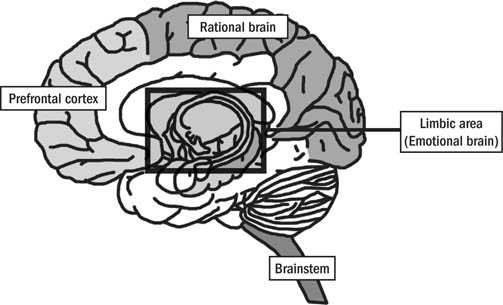
Figure 1.1: The three major parts of the brain and the prefrontal cortex.
Just above the brainstem is the next oldest area, known as the limbic system, responsible for processing emotional information and generating emotional responses. This area is often referred to as the emotional brain. Because emotions play an important role in maintaining family and community bonds, as well as in securing a mate, outside stimuli that contain emotional information have the next highest priority.
Next pageFont size:
Interval:
Bookmark:
Similar books «Brainwork»
Look at similar books to Brainwork. We have selected literature similar in name and meaning in the hope of providing readers with more options to find new, interesting, not yet read works.
Discussion, reviews of the book Brainwork and just readers' own opinions. Leave your comments, write what you think about the work, its meaning or the main characters. Specify what exactly you liked and what you didn't like, and why you think so.

